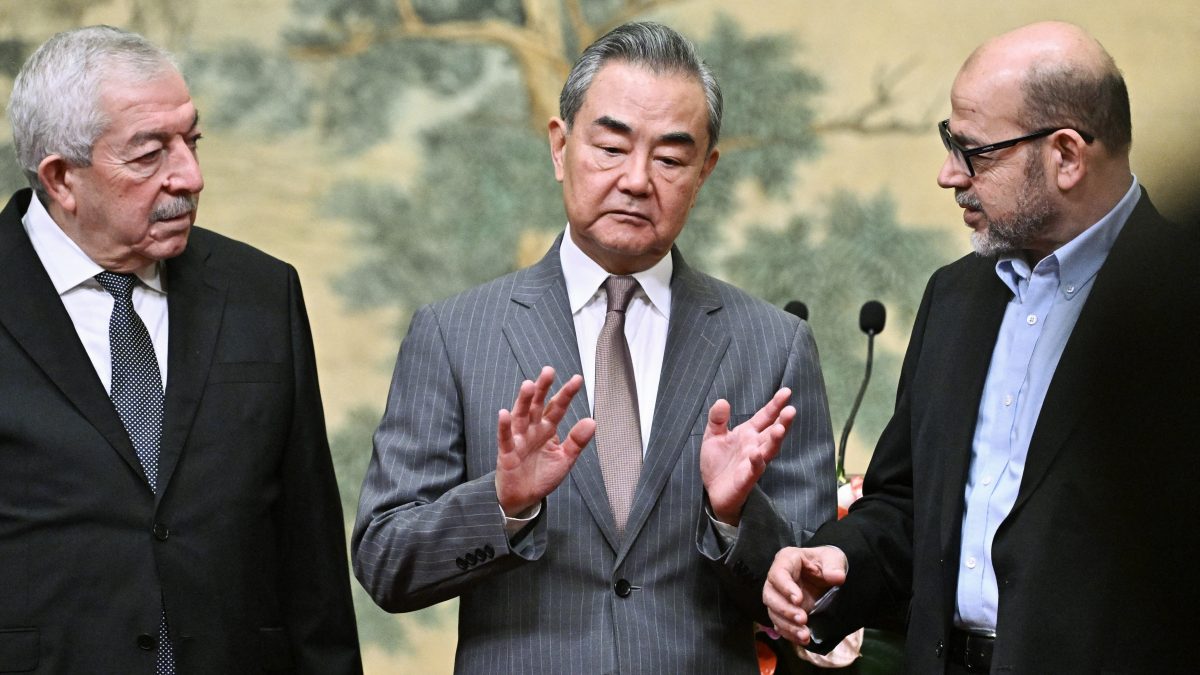Senior Hamas official Musa Abu Marzuk on Tuesday (July 23) announced his organisation had signed an agreement with other Palestinian groups including rivals Fatah while on a visit to China.
“Today we sign an agreement for national unity and we say that the path to completing this journey is national unity. We are committed to national unity and we call for it,” Abu Marzuk said.
China reveals details
China’s Foreign Minister Wang Yi on Tuesday hailed the agreement by 14 Palestinian factions to form an “interim national reconciliation government” to govern Gaza post-war.
Palestinian factions, including Hamas and Fatah, convened in Beijing this week for reconciliation talks.
As the meeting concluded on Tuesday, China’s top diplomat said the factions had committed to “reconciliation.”
“The most prominent highlight is the agreement to form an interim national reconciliation government for post-war Gaza,” Wang said after the factions signed the “Beijing declaration” in the Chinese capital.
“Reconciliation is an internal matter for the Palestinian factions, but it cannot be achieved without international community support,” Wang said. China, he added, aims to “play a constructive role in safeguarding peace and stability in the Middle East.”
The Fatah-Hamas conflict
The rivalry between Fatah and Hamas has been a major aspect of Palestinian politics since Hamas won the 2006 Palestinian Legislative Council elections. The resulting armed conflicts and unsuccessful attempts at forming a unity government have led to a split in leadership, with Fatah in control of the West Bank and Hamas governing the Gaza Strip. This divide has prevented elections since 2006-07, making governance issues and repression worse in both areas.
Impact Shorts
More ShortsThe lack of a united Palestinian voice has hindered efforts for meaningful negotiations with Israel. Israel often cites the absence of a single, representative Palestinian entity as a barrier to peace talks. Therefore, it is essential for Fatah and Hamas to reconcile in order to support any political process or negotiation aimed at achieving a two-state solution.
Beijing aims to bolster its diplomatic influence and differentiate its role from the United States, which China has frequently accused of being a destabilizing force due to its unwavering support for Israel.
China’s foothold in Palestine
If China successfully bridges the gap between Fatah and Hamas, it could greatly increase its influence in the Middle East. This diplomatic achievement would improve China’s global reputation as a peace mediator and strengthen its position in the region. Additionally, by backing Palestinian reconciliation, Beijing can advance its strategic goals and establish itself as an alternative to Western influence, particularly that of the US.
This decision is also in line with China’s wider Belt and Road Initiative (BRI), which aims to increase Beijing’s economic and strategic presence around the world. A strong and unified Palestinian leadership could create opportunities for new economic and infrastructure projects under the BRI, strengthening China’s influence in the Middle East.
With inputs from AFP


)

)
)
)
)
)
)
)
)



